AE9/11 Truth Editor’s Note: Frances Shure, M.A., L.P.C., has performed an in-depth analysis addressing a key issue of our time: “Why Do Good People Become Silent — or Worse — About 9/11?” The resulting essay, being presented here as a series, is a synthesis of both academic research and clinical observations.
 In answering the question in the title of this essay, the January 2015 segment — Learned Helplessness — reported on the conditioned responses of utter helplessness and hopelessness resulting from ongoing painful trauma or adversity that involves actual or perceived lack of control.
In answering the question in the title of this essay, the January 2015 segment — Learned Helplessness — reported on the conditioned responses of utter helplessness and hopelessness resulting from ongoing painful trauma or adversity that involves actual or perceived lack of control.
Here, in the March 2015 installment [there was no February installment, because the January piece appeared in the February newsletter], we continue Ms. Shure’s analysis with Part 15: The Abuse Syndrome.
BRUCE LEVINE: THE ABUSE SYNDROME
A dynamic that may help explain the “nothing we can do about it” reaction to the evidence that refutes the official 9/11 account is the “abuse syndrome,” as described by clinical psychologist Bruce E. Levine. To maintain control, abusive spouses, bosses, and governments shove lies, physical and emotional abuse, and injustice in their victims’ faces. When the victims continue to be afraid to exit from these relationships or fail to fight back, they get weaker, they feel humiliated by their passivity, they feel broken, and they feel shame.1
Our true nature does not harbor feelings of shame. Originating from trauma, shame is characterized by self-hatred and a fundamental sense that we are unworthy and unlovable.
Eventually, victims in a relationship marked by trauma can develop a deep-seated fear that they cannot survive without the abuser in their lives. This belief increases their feelings of helplessness.
An even more extreme form of this dynamic involves victims of captivity, who may become attached to their captors, and may even defend them. Known as the “Stockholm syndrome,” this relationship can also apply to children who are, psychologically and physically, de facto captives to abusive parents.2
PATRICK CARNES: BETRAYAL BONDING
Psychologist and sexual-addictions counselor Patrick J. Carnes gives us a further understanding of the abuse syndrome by introducing the concept of “betrayal bonding” or, alternately, “trauma bonding.” He has found that these dysfunctional bonds originate when those who are betrayed (usually children) bond with someone who is destructive to their well-being, resulting in a template for future “insane loyalties.”3
Normally, we think of abusive relationships as applying to individuals — typically children abused by their parents or wives battered by their violent husbands — but other authors, including Levine, recognize that the abuse syndrome can also apply to groups or to entire societies.
JAMES TRACY: BATTERED CITIZEN SYNDROME
For example, James F. Tracy, associate professor of media studies at Florida Atlantic University, has applied the four stages that domestic abuse victims traverse to collective abuse, and he has coined the phrase “battered citizen syndrome” to define this new, broader category. Tracy emphasizes that abuse of citizens by governments has reached the point of a “grave societal malady.” Battered citizens, Tracy says, traverse these same four stages (if they in fact manage to free themselves from their government’s abusive actions). Specifically, battered citizens will:
- deny that there is political violence toward citizens by their governments, when such violence obviously exists;
- experience guilt and low self-esteem from believing that somehow they are to blame for the political violence; or experience fear for having been fingered as potential terrorists by the government, which induces them to rationalize or tolerate officials’ destruction of civil liberties;
- reach eventual “enlightenment,” realizing that they are not to blame for the ill-treatment, yet they may still try to work with the abusive government; and finally
- show responsibility for leaving the abusive relationship by working to establish new modes of governance.4
In other words, whether we are children, spouses, or citizens, we have a deep need to trust our parents, spouses, and our government. When we are abused physically or emotionally in these relationships, we try to keep that trust intact by rationalizing the abuser’s actions and blaming ourselves. When we acquiesce in this way, however, we feel disempowered, which in turn causes our anger and frustration to build. If we have the courage to think for ourselves, we realize that we do not deserve this abuse — even though we still may try to work with the abusers. As we gain further courage, we fight back, if we are physically able, or we leave the abusive relationship. Through this process, we regain our integrity, self-respect, and sense of empowerment.
EDWARD BERNAYS: THE ENGINEERING OF CONSENT
Another example of citizen-battering — through the calculated manipulation of public opinion by governments, as well as by corporations — was instigated by Sigmund Freud’s Austrian-born American nephew, Edward L. Bernays.
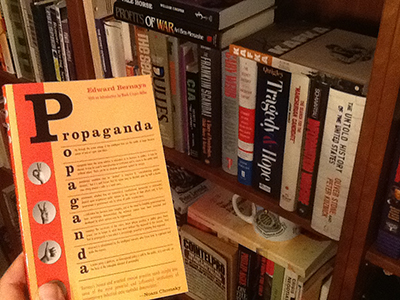 Strongly influenced by Freud, Bernays was convinced that human beings are innately driven by monstrous, irrational, inner desires and fears, which civilization is meant to restrain.
Strongly influenced by Freud, Bernays was convinced that human beings are innately driven by monstrous, irrational, inner desires and fears, which civilization is meant to restrain.
As is true for many of us, Bernays was a complicated fellow who, while sincerely wanting democracy to flourish, also believed that the common citizen was, frankly, too stupid to be trusted with democracy.
His utopian vision was a democratic society in which the dangerous libidinal energies lurking just below the surface of every human could be harnessed and channeled by the corporate elite for economic benefit. The mass production of goods would fulfill the constant craving of the inherently irrational drives of the masses. This cultural dynamic would ensure ongoing mass production as well as sating the dangerous animal instincts that threatened to tear society apart.
In other words, Bernays believed that to form an orderly and prosperous society — the “American way of life” that he so valued — the masses would need to be scientifically manipulated by an elite class of citizens — by an “invisible government” who understood these dangerous forces.
According to Bernays, this manipulation would be based upon findings made in such fields as sociology, social psychology, and anthropology, and would be accomplished through covert techniques of opinion-molding, which he called the “engineering of consent.” In this strategy, advertising is employed to show the masses the self-images to which they should aspire and the products they would need to purchase in order to satisfy these self-images. Thus the science of public relations, more properly known as “propaganda,” was born, birthed in large part by Bernays and nourished and developed by corporations to sell their products, and by public relations companies to sell presidential candidates and foreign policy.5
As Bernays wrote,
[Researchers of mass psychology] established that the group has mental characteristics distinct from those of the individual, and is motivated by impulses and emotions which cannot be explained on the basis of what we know of individual psychology. So the question naturally arose: If we understand the mechanism and motives of the group mind, is it not possible to control and regiment the masses according to our will without their knowing about it? . . . . If you can influence the leaders, either with or without their conscious cooperation, you automatically influence the group which they sway.6
This strategy of first influencing the opinion leaders of a society was also discovered by anthropologists as a way to introduce and establish new ideas into a society (see Part 2: Diffusion of Innovations). Bernays made liberal use of these “third party authorities” to sell his clients’ cases. Among his successful propaganda campaigns: Trusted physicians pronounced bacon and eggs the best breakfast, dentists promoted fluoridation of water as safe and beneficial, and fetching young models lighting up “torches of freedom” broke the taboo against women smoking.7
Americans, who at one time saw themselves as citizens with civic duties, were manipulated by Bernays’ propaganda techniques into thinking of themselves as consumers whose self-esteem was validated by the products they bought. Politicians who employed public relations experts skilled at “spin” found that, as candidates in an election, they merely had to make whatever promises would appeal to their constituency — whether they intended to follow through with those promises or not. This is obviously the culture we inherit today.
In addition to working with corporations and high-profile individuals, Bernays worked with the U.S. government and the CIA to implement foreign policy decisions. For example, he joined with other social scientists to influence public opinion toward supporting American participation in World War I. He also worked in concert with the U.S. government and the United Fruit Company to facilitate the overthrow of the democratically elected president of Guatemala, Jacobo Árbenz Guzmán, by branding him a communist — a claim that was dutifully published without critique by major U.S. media.8
In the 1960s, protestors throughout the U.S. launched a backlash against this manipulation of the public, which they viewed as a way to keep the public sated by purchasing products, while the government did what it wanted — which, at the time, included implementing the destructive foreign policy in Vietnam.9
Many citizens now understand that the strategy of unlimited growth of mass-produced goods is not sustainable for our planet. They also realize that a so-called democracy run by an elite whose members successfully manipulate the public is no longer a democracy — a fact that did not seem to dawn on the brilliant Edward Bernays.
His business as a public relations counselor in New York City thrived from 1919 until 1963, and he was even named as one of the 100 most influential Americans of the 20th century by Life magazine. During his highly successful career, the horrors of World War II, including the concentration camps, strengthened his belief in the innate, monstrous drives just under the surface of the human façade, as well as his belief in the necessity of having an elite class that would control the urges of the masses. Nevertheless, in a classic case of bitter irony — and what should have been a wake-up call to rethink his arrogant certainty about manipulating others — his brilliant insights on engineering public opinion were turned against his Jewish brethren in Nazi Germany. Bernays recounted in his autobiography, Biography of an Idea, a dinner conversation at his home in 1933:
Karl von Weigand, foreign correspondent of the Hearst newspapers, an old hand at interpreting Europe and just returned from Germany, was telling us about Goebbels and his propaganda plans to consolidate Nazi power. Goebbels had shown Weigand his propaganda library, the best Weigand had ever seen. Goebbels, said Weigand, was using my [Bernay’s] book Crystallizing Public Opinion as a basis for his destructive campaign against the Jews of Germany. This shocked me. . . . Obviously the attack on the Jews of Germany was no emotional outburst of the Nazis, but a deliberate, planned campaign.10
How far will today’s spinmeisters take us into Bernays’ “engineering of consent” — into a matrix of lies — as they prey on our natural human fears? If the false-flag event of September 11, 2001, is any indication, and if the official propaganda about what happened on that fateful day is any indication, the official propagandists will take us as far as we let them. According to whistleblower Barbara Honegger, former CIA Director William Casey candidly remarked in early February 1981: “We’ll know our disinformation program is a success when everything the American public believes is false.”11

Ultimately, spin, lies, and abuse lead us down a road toward mutual destruction, not to the prosperity and freedom that Edward Bernays envisioned. Ethical psychology professionals, including this writer, strongly believe that our profession should not be used to control, manipulate, exploit, abuse, or torture human beings. Unfortunately, others in my profession disagree, as is evidenced by certain members of the American Psychological Association who aided and abetted torture of detainees after 9/11.12
Psychologists with scruples maintain that the ultimate goals of our profession are to help people understand themselves, to heal and reclaim the natural goodness with which we were born, and to become free, compassionate, and wise individuals.
DOUGLAS RUSHKOFF: WHY WE LISTEN TO WHAT “THEY” SAY
Douglas Rushkoff, professor of virtual culture at New York University, gives us another example of societal abuse in the marketplace. Rushkoff reveals that influence techniques promoted by Dale Carnegie (How to Win Friends and Influence People) and refined by the CIA for its noncoercive interrogations, were adapted and upgraded by a variety of industries for their marketing and sales practices. In his detailed and fascinating exposé, Coercion: Why We Listen to What “They” Say, Rushkoff demonstrates that whether through interrogation in a windowless room by a CIA agent or through seemingly benign manipulations by a bed salesman, the process is essentially the same.
First, establish good rapport and trust (for example, employ the “good cop vs. bad cop” strategy). Then, using the tricks of the trade, disorient the subject by disrupting his familiar emotional associations. Confusion naturally follows. The CIA manual explains:
When this aim is achieved, resistance is seriously impaired. There is an interval — which may be extremely brief — of suspended animation, a kind of psychological shock or paralysis . . . that explodes the world that is familiar to the subject as well as his image of himself within that world. Experienced interrogators recognize this effect when it appears and know that at this moment the source is far more open to suggestion.13
At this moment of disorientation, Rushkoff notes, the subject is ripe for manipulation. He enters a regressed state, which immediately leads to transferring authority to the interrogator or to the sales person, who the subject now regards as a parental figure. Compliance with that “parental” authority naturally follows, whether this involves divulging information or buying an unneeded $3,000 bed.
KEVIN BARRETT: A MOMENT OF DISSOCIATION
Dr. Kevin Barrett, a scholar of Islam and literature, and co-founder of the Muslim-Christian-Jewish Alliance for 9/11 Truth, postulates that this process applies directly to the attacks of September 11, 2001 — an event he believes was designed to infantilize the public through psychological shock or paralysis. “We experienced a moment of dissociation,” he says, “which is why we can still recall where we were and what we were doing when we learned of the attack . . . . We desperately needed a parent figure to tell us how to make sense of the madness.”14
THE CYCLE OF VIOLENCE
When we fail to confront oppression and abuse, whether individual or societal, whether overt or subtle, we suppress the unwelcome fact that our trust has been abused and betrayed. We feel miserable because, in essence, we are compromising our true self by denying what we know to be true and what we know to be right. When we do not reclaim our inherent power to stand up to oppression and abuse, we become depressed and ashamed, emotions we seek to escape by watching too much mind-numbing TV, overeating, or misusing substances — these excesses sending us into deeper depression and shame.
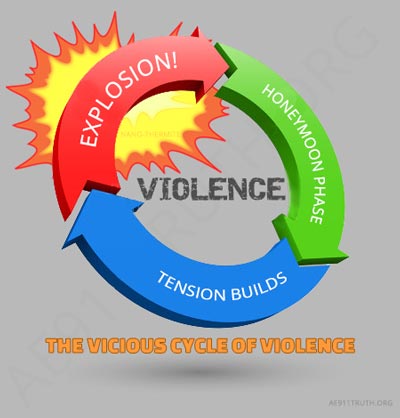 After he had studied the evidence that refutes the official account of 9/11, a friend of mine declared, “My solution to this 9/11 issue is to do more drugs.” Sadly, he was not joking.
After he had studied the evidence that refutes the official account of 9/11, a friend of mine declared, “My solution to this 9/11 issue is to do more drugs.” Sadly, he was not joking.
Those who are inclined to abuse others usually pick on people who appear weak. As the victim succumbs to the abuse, the dynamic escalates, with more abuse hurled at the victim, who then sinks deeper into passivity and shame. Violent abuse normally happens at this point.
After this explosion of violence, the repentant abuser may, in what is termed the “honeymoon phase,” offer apologies and gifts to the victim. The victim then feels hope, erroneously believing that the abuser is actually amending his ways. But tension once again builds, leading to another round of abuse.
EARLY CHILDHOOD TRAUMA AT ROOT OF REACTIONS
Why do some people fall victim to this vicious cycle of violence, while others, at the mere suggestion or faintest whiff of abuse, decisively stand up for themselves and challenge the would-be abuser?
The pattern of reacting to abuse with passivity and shame most likely began with the early treatment we received from our parents or other authority figures — or this pattern may even have begun from conception through our birth experience. For example, beginning with conception, did our parents want us?15 Was our birth violent or non-violent?16 As infants and young children, did our parents look at us with disgust or with adoration? Or were they so distracted that they hardly looked at us at all? Did they hold and touch us consistently with love? Was their touch invasive or punishing?17 Or did they hardly touch us except when necessary? Did they respond to our natural needs in a timely way? Were our expressions of emotion received with anger, with controlling and shaming messages, or with loving recognition, acceptance, and support, along with appropriate structure? Were we lovingly and securely attached to our parents?18 Did teachers, priests, ministers, uncles, aunts, older siblings and cousins, or other authority figures abuse us emotionally or physically?
The answers to these questions usually determine our level of self-esteem and self-confidence as well as how inner-directed or outer-directed we become as adults. The answers can also strongly indicate whether we become violent or peaceful as adults, and on a collective level, whether we live in — and contribute to — a violent or a peaceful society.19
Both passiveness in the face of abuse (as experienced by the victim) and violence in the face of passiveness (as committed by the abuser — and this includes the perpetrators of 9/11) are behaviors that stem from abuse received in infancy and childhood. If we truly want a nonviolent society, therefore, a prerequisite will be a vast improvement in how we treat our children, from conception through birth, and from natural childrearing through compassionate and enlightened education.20
LIBERATION PSYCHOLOGY
According to Bruce Levine, the psychology profession, rather than acknowledging the abuse syndrome and helping clients heal and exit toxic relationships, has moved increasingly in the direction of pathologizing and medicating those who question authorities as well as those who feel oppressed and thus become depressed. In other words, some practitioners of this profession add insult to injury.
Today, increasing numbers of people in the U.S. who do not comply with authority are being diagnosed with mental illnesses and medicated with psychiatric drugs that make them less pained about their boredom, resentments, and other negative emotions, thus rendering them more compliant and manageable.21
In addition, writes Levine:
By the mid-1980s, psychiatry was beginning to become annexed by pharmaceutical companies and forming what we now have—a “psychiatric-pharmaceutical industrial complex.” Increasingly marginalized was the idea that treatment that consisted of manipulating and medicating alienated people to adjust to this crazy rat race and thus maintain the status quo was a political act — a problematic one for people who cared about democracy.22 (Emphasis added)
 For example, in my own experience, a young psychology student called me from Denmark just to “talk.” His university’s psychologist had decided he was paranoid since, after much research, he had decided that 9/11 was a false-flag operation. He had found my name through the film 9/11: Explosive Evidence — Experts Speak Out, and was so heartened and relieved by the “Seeking Understanding” segment that he decided to take this DVD to his psychologist to demonstrate to her that he was not mentally unstable. What a challenge for this young man that this psychologist was so quick to label him with a diagnosis, rather than open-mindedly researching the issue herself!
For example, in my own experience, a young psychology student called me from Denmark just to “talk.” His university’s psychologist had decided he was paranoid since, after much research, he had decided that 9/11 was a false-flag operation. He had found my name through the film 9/11: Explosive Evidence — Experts Speak Out, and was so heartened and relieved by the “Seeking Understanding” segment that he decided to take this DVD to his psychologist to demonstrate to her that he was not mentally unstable. What a challenge for this young man that this psychologist was so quick to label him with a diagnosis, rather than open-mindedly researching the issue herself!
Levine suggests that the psychology profession needs to move in the direction of “liberation psychology,” a concept popularized by Ignacio Martin-Baró, a social psychologist and priest in El Salvador who recognized a “psychology of oppression” in which the downtrodden of a society fatalistically believe they are powerless to alter their circumstances. Consequently, they become resigned and apathetic to their situation. Sadly, Martin-Baró was assassinated in 1989 — by a U.S.-trained Salvadoran death squad — for speaking out on behalf of the oppressed.23
Rather than pathologize and medicate “anti-authoritarians [who] question the legitimacy of an authority before taking it seriously,” psychology professionals should support clients with a “shot of morale” that encourages them to do their own critical thinking and to become active and creative in their own unique ways.24Psychotherapists also need to be capable of providing opportunities for healing earlier traumas of omission and commission in order to interrupt old behavioral patterns.25
THE 9/11 ELEPHANT IN OUR LIVING ROOM
As activists, or simply as concerned citizens, we must not succumb to the pessimistic belief that “we’ll never know the truth of 9/11, so let’s just move forward as best we can and forget about this terrible subject.” With an issue as taboo and disturbing as 9/11, it is tempting to want to avoid the whole matter — to avoid acknowledging the 9/11 elephant in our national living room — and to work on other concerns for which we think there is a better chance of success.
Even though one could argue that a full, fair, and objective investigation with subpoena power in the U.S. is unlikely to occur in the near future, I propose that we take a longer view of this challenging issue with which we 9/11 activists have become entangled.
First, a little history is in order, so we can understand where our movement stands. To date, the corporate-owned media have conspicuously ignored the evidence that refutes the official storyline of 9/11. There are, however, a few notable exceptions: David Ray Griffin, a political writer and professor emeritus of philosophy of religion and theology, appeared on C-SPAN in 2005 and 2006.26 And on August 1, 2014, C-SPAN finally interviewed Architects & Engineers for 9/11 Truth’s Richard Gage, AIA, on Washington Journal.27 For the most part, though, the glances that the compromised mainstream media have given 9/11 skeptics are contemptuous and slanderous [see here, here, and here28].
Likewise, to date, with rare exception, members of Congress treat the 9/11 controversy like a hot potato, apparently more fearful of losing their jobs than interested in the integrity of our country. The aforementionedWashington Journal program is filled with federal legislators [here, here, and here] who dodge citizens’ queries about Building 7 as if the questioners were carriers of a dangerous infectious disease.29
Yet despite these serious handicaps, the 9/11 Truth Movement has been stunningly successful in (1) documenting mountains of evidence that could inform a possible future national or international investigation and (2) raising awareness around the world regarding the realities of 9/11 as well as of other false-flag operations and deceptions by governments.30
Even if there is not a real investigation anytime soon, why is it still important that as many people as possible know the truth of 9/11?
Well, for one thing, how in the world can we make sound, rational decisions when we don’t have accurate information upon which to base these decisions? When we grasp the reality of the attacks of 9/11, as well as the reality of other State Crimes Against Democracy (see Part 13), it’s highly unlikely that, for example, we will be as easily manipulated to support unnecessary wars — or to encourage our sons and daughters to fight in them. Having access to accurate information in such cases can be a life-or-death concern.
Additionally, becoming more aware of such hidden realities can be empowering individually and collectively, as it helps to shift the balance of power from deceitful authorities to wiser citizens who are capable of seeing through the machinations of the deep state.
Author and political activist Arundhati Roy has eloquently expressed that empowerment: “The trouble is that once you see it, you can’t unsee it. And once you’ve seen it, keeping quiet, saying nothing, becomes as political an act as speaking out. There’s no innocence. Either way, you’re accountable.”31
Accordingly, once we see 9/11 as a false-flag operation, understand the existence of the deep state, and learn of other State Crimes Against Democracy, our vision shifts. We can’t unsee it. It is as though blinders have been removed, giving us a much, much wider perspective on political realities.
This eye-opening process is frightening at first to many of us. As one friend said, “I’m afraid I won’t be able to trust anyone anymore!” This fear is not easily overcome by those who have been sheltered from world events, blinded by false propaganda, or so abused that they can’t handle one more betrayal. But at some point, many of us do get beyond our fear, and we discover that we are actually empowered. We are then led to others who are equally awake.
As we gradually become more aware of accurate information about many different areas of concern — such as the need for real financial reform — and learn how to use rational discernment in each of these areas, we become able to make more conscious decisions, and to live more consciously. We increasingly find that we can trust ourselves, we feel freer, and we lose our fear “of not being able to trust anyone anymore.”
 If, on the other hand, we continue “looking forward”32 while remaining silent about the 9/11 elephant in our American living room, we will take her with us into our future,inviting future false-flag operations and other forms of abuse inflicted by government authorities and the powerful, behind-the-scenes deep state. It would appear that many of these figures are likely true sociopaths, lacking a conscience or any sense of connection to the rest of life — a topic we will discuss in Part 20: Those Who Lack Conscience and Empathy.
If, on the other hand, we continue “looking forward”32 while remaining silent about the 9/11 elephant in our American living room, we will take her with us into our future,inviting future false-flag operations and other forms of abuse inflicted by government authorities and the powerful, behind-the-scenes deep state. It would appear that many of these figures are likely true sociopaths, lacking a conscience or any sense of connection to the rest of life — a topic we will discuss in Part 20: Those Who Lack Conscience and Empathy.
So, even though the “looking forward” slogan prevented prosecution of state crimes, we must move forward in uncovering the truth about the 9/11 issue, no matter what others may say. If we can persevere confidently and compassionately, for the most part, rather than with fear and excessive urgency, we may inspire others to follow suit. Indeed, when we heed our intuition — what might be variously called our “our deep, inner sense of rightness,” “our inner truth” or “the still, small voice within” — the resulting peace we feel and intelligent actions we take could motivate others to free themselves from the abuse syndrome and the resulting passivity and shame.
OVER-ANALYZING?
 Some might say I am over-analyzing. After all, when we know the power of the corporate and elite forces we face, isn’t it normal to feel helpless and apathetic? Isn’t it being realistic not to do anything to expose these forces, not to try to take them to justice? Wouldn’t such actions be, at the very least, a waste of time, causing us to neglect those “real” issues so in need of attention? And, besides, aren’t people who focus on ferreting out the truth about 9/11 really just “Debbie Downers?”33 Aren’t they simply cynical and obsessed with negative information, and unable to see the good in our world?
Some might say I am over-analyzing. After all, when we know the power of the corporate and elite forces we face, isn’t it normal to feel helpless and apathetic? Isn’t it being realistic not to do anything to expose these forces, not to try to take them to justice? Wouldn’t such actions be, at the very least, a waste of time, causing us to neglect those “real” issues so in need of attention? And, besides, aren’t people who focus on ferreting out the truth about 9/11 really just “Debbie Downers?”33 Aren’t they simply cynical and obsessed with negative information, and unable to see the good in our world?
I have heard all of these defensive and pathologizing remarks from those who do not want to acknowledge and deal with this elephant; and even if they have seen the elephant, they neglect to acknowledge the activists whose courageous and tireless work makes the unspeakable speakable. But that is the nature of this difficult activist path, the nature of a path that requires breaking through both the internal and external taboo barriers surrounding 9/11 — or any paradigm-changing issue.
I propose that we look at these defensive rationalizations from another angle: If 9/11 is a false-flag operation, as proposed by skeptics of the official account — that is, if certain persons in powerful positions conspired to orchestrate the 9/11 attacks, as evidence strongly indicates — would it be rational not to do anything? Do we think that the perpetrators would altruistically reform themselves if all of us kept silent? Wouldn’t we be hoping against hope that similar treacheries would never occur again — or, if they did, that our family and close friends would somehow be spared?
We each must decide for ourselves.
From my standpoint, living my life based on such rationalization and false hope would be living from fear and resignation, and deep within, I would carry the anxiety and self-disrespect of knowing that I was living a lie.
In this segment, we have explored the abuse syndrome, which may cause its victims to react to challenging situations — such as hearing the evidence that refutes the official account of 9/11 — with powerlessness, shame, or apathy. There is another kind of response to such information that can lead to the victims biologically shutting down their awareness. This automatic process is known as dissociation, which we will explore in the next segment in this series.
AE 9/11 Truth Editor’s note: To be continued in the next issue with Part 16: Dissociation. Electronic sources in the footnotes have been archived. If they can no longer be found by a search on the Internet, readers desiring a copy may contact Frances Shure for a copy here.
Continued with Part 16: Dissasociation
Notes:
1 Bruce E. Levine, Get Up, Stand Up: Uniting Populists, Energizing the Defeated, and Battling the Corporate Elite(Chelsea Green Publishing Company, White River Junction, VT, 2011).
2 Ibid.
The term “Stockholm syndrome” derives from a 1973 Swedish bank robbery in which hostages became emotionally attached to their bank-robber captors. See http://en.wikipedia.org/wiki/Stockholm_syndrome.
Bruce E. Levine “Are Americans a Broken People? Why We’ve Stopped Fighting Back Against the Forces of Oppression,” AlterNet, December 11, 2009. Seehttp://www.alternet.org/story/144529/are_americans_a_broken_people_why_we%27ve_stopped_fighting_back_against_the_forces_of_oppression.
3 Patrick J. Carnes, The Betrayal Bond: Breaking Free of Exploitive Relationships (Deerfield Beach, FL: Health Communications, Inc., 1997).
4 James F. Tracy, “Human Consciousness and the “Battered Citizen Syndrome”: The Psychological Impacts of War Propaganda and State-sponsored Terrorism.” See http://www.globalresearch.ca/human-consciousness-and-the-battered-citizen-syndrome-the-psychological-impacts-of-war-propaganda-and-state-sponsored-terrorism/5407954.
For the four psychological stages of the battered woman syndrome, seehttp://www.domesticviolenceinfo.ca/article/psychology-of-the-battered-woman-syndrome—264.asp.
5 See http://www.sourcewatch.org/index.php/Edward_Bernays.
Joe McGinniss, The Selling of the President: The Classical Account of the Packaging of the President (Penguin Books, 1969).
6 Edward Bernays, Propaganda (Ig Publishing, 1928) 71 – 73.
7 See http://www.sourcewatch.org/index.php/Edward_Bernays.
8 Ibid.
9 For more of this fascinating history, see the four-part DVD The Century of the Self by filmmaker Adam Curtis, first broadcast on BBC TV in 2002.
10 Quote found at http://www.sourcewatch.org/index.php/Edward_Bernays.
11 In a personal e-mail communication to me, Barbara Honegger confirmed that she was the source of this quote, having been in attendance as the then-White House Policy Analyst at the February 1981 meeting in the White House Roosevelt Room with President Reagan and his new cabinet secretaries and agency heads. New CIA Director William Casey spoke these words in response to a question the President put to all of the cabinet secretaries and agency heads: “What are your main goals for your department or agency?” Having worked with radio show host Mae Brussell upon returning to California from the White House, Honegger was also the source for Brussell’s second-hand report about Casey’s words. Honegger also said she recalls Casey saying “. . . program is a success . . .,” rather than “. . . program is complete.” For further detail on Honegger’s account of this quote, see http://www.infiniteunknown.net/2015/01/15/did-cia-director-william-casey-really-say-well-know-our-disinformation-program-is-complete-when-everything-the-american-public-believes-is-false.
12 Roy Eidelson, “Cast Into the Depths: Perilous Waters for the American Psychological Association” (Truthout, January 12, 2015). See http://www.truth-out.org/opinion/item/28497-cast-into-the-depths-perilous-waters-for-the-apa.
13 Douglas Rushkoff, Coercion: Why We Listen to What “They” Say (Riverhead Books, New York, NY 1999) p. 41.
Original source cited in footnote of Rushkoff, Coercion: Central Intelligence Agency, “Kubark Counterintelligence Interrogation” manual, CIA classified publication, July 1963, obtained through the Freedom of Information Act in 1997, and distributed on the Internet. Seehttp://www.uscrow.org/downloads/Survival%20Public%20Domain/Kubark_Counterintelligence_Interrogation_torture_manual1963.pdf.
14 Kevin Barrett, “Apocalypse of Coercion: Why We Listen to What ‘They’ Say About 9/11.” Seehttp://mujca.com/apocalypse.htm.
15 Henry David Philip (Contributor), Born Unwanted: Developmental Effects of Denied Abortion (Avicenum: Prague, 1988; later published by Springer: New York and EDAMEX in Mexico City). See a review athttps://birthpsychology.com/content/born-unwanted-developmental-effects-denied-abortion#.VLMXGyc3PEM.
Thomas R. Verny, M.D., with John Kelly, The Secret Life of the Unborn Child (Dell Publishing, 1981). This remarkable classic reports on research showing that what happens to us from conception through birth shapes our personalities, ambitions, and our emotional and physical health.
Thomas R. Verny, M.D. with Pamela Weinraub, Pre-Parenting: Nurturing Your Child from Conception (New York: Simon & Schuster).
16 Thomas R. Verny, M.D., “Birth and Violence.” See https://birthpsychology.com/free-article/birth-and-violence#.VLMhzCc3NXA.
Verny, Pre-parenting, chapter 5. Especially note the much greater risk for committing violent crime by 18 years of age when there is a combination of birth complication with maternal rejection, pp. 81 – 82.
17 Ashley Montagu, Touching: The Human Significance of the Skin (New York: Harper and Row, Third ed., 1986). This is the classic for understanding the importance of loving touch to mental and physical health.
18 Marshall H. Klaus, M.D., John H. Kennell, M.D., and Phyllis H. Klaus, C.S.W., M.F.C.C., Bonding: Building the Foundations of Secure Attachment and Independence (Addison-Wesley Publishing Company, Inc., 1995).
19 James W. Prescott, Ph.D., “Body Pleasure and the Origins of Violence,” Bulletin of the Atomic Scientists, November 1975, 10–20. See http://www.violence.de/prescott/bulletin/article.html.
James W. Prescott, “Prevention or Therapy and the Politics of Trust: Inspiring a New Human Agenda,”Psychotherapy and Politics International 3, no. 3 (2005) 194–211. See http://violence.de/prescott/politics-trust.pdf
See further research of James W. Prescott, at http://violence.de, and purchase the DVD Rock-A-Bye Baby (a Time Life Video production), which documents the research of Prescott and others, athttps://ttfuture.org/academy/james-w-prescott/overview. There is also a three-part YouTube series:
Part 1 of 3: https://www.youtube.com/watch?v=uRI8VKApgsU
Part 2 or 3: https://www.youtube.com/watch?v=H6sKo-OKAuE
Part 3 of 3: https://www.youtube.com/watch?v=jurRryx2a8I
Note from this writer: Watching these brain-damaged baby monkeys is difficult for anyone with a modicum of sensitivity toward the suffering of other beings. It is lamentable that our culture believes sacrificing the well-being of non-human innocents is necessary for scientific progress. I hope and believe that when we find the will to discover truths without such sacrifice, we will do so.
I also know James Prescott personally, and am aware that he passionately wants to stop human suffering at its origins. His groundbreaking research demonstrates that the deprivation of infant and adolescent needs results in violent societies, whereas the satisfaction of these needs results in nonviolent societies — an astounding discovery that should be made public.
Robin Grille, Parenting for a Peaceful World (Longueville Media, New South Wales, Australia, 2015) This email address is being protected from spambots. You need JavaScript enabled to view it..”>[email protected]. North American distributor: The Natural Child project, www.naturalchild.org or 877-593-1547. This important work documents the history of how child-rearing practices have forged the destiny of nations and cultures.
Marcy Axness, Parenting for Peace: Raising the Next Generation of Peacemakers (First Sentient Publications ed. 2012).
20 Grille, Parenting for a Peaceful World.
21 Levine, “Are Americans a Broken People?”
22 Bruce E. Levine, “How Psychologists Subvert Democratic Movements,” Z Magazine, October 2012. See
http://www.zcommunications.org/how-psychologists-subvert-democratic-movements-by-bruce-e-levine.
23 Levine, Get Up, Stand Up, 146.
24 Ibid.
25 Traumas of omission come from our unmet anaclitic needs, such as loving touch and unconditional love — needs that necessarily must be met from another person outside of ourselves. Traumas of commission are events that were done to us that were harmful, such as birth trauma, sexual abuse, or corporal punishment.
26 “Book Discussion on 9/11 and American Empire: Intellectuals Speak Out” (2005) and “Book Discussion onThe 9/11 Commission Report: Omissions and Distortions” (2006). See http://www.c-span.org/search/?searchtype=Videos&sort=Newest&personid%5B%5D=1014188.
27 “C-SPAN Interviews Determined AE911Truth Founder: Richard Gage, AIA, Drives Home Explosive Evidence.” See http://www1.ae911truth.org/en/news-section/41-articles/907-c-span-interviews-determined-ae911truth-founder.html.
28 Craig McKee, “CNN’s ‘Yellow Journalism’ Rating Hits All-Time High: As Jake Tapper’s ‘The Lead’ Dips to a New Low with ‘Coverage’ of AE911Truth’s 9/11 Museum Brochure.” Seehttp://www1.ae911truth.org/en/news-section/41-articles/884-cnns-yellow-journalism-rating-hits-all-time-high-.html.
“3 Towers, 2 Brochures, 1 Truth: Controversy Brims at Grand Opening of 9/11 Museum — AE911Truth On-Site to Set the Record Straight.” See http://www1.ae911truth.org/en/news-section/41-articles/893-3-towers-2-brochures-1-truth.html.
Craig McKee, “Draw Your Line in the Sand with a Letter to CNN: AE911Truth Slandered over 9/11 Museum Outreach — Legal Action Considered.” See www1.ae911truth.org/en/news-section/41-articles/894-draw-your-line-in-the-sand-with-a-letter-to-cnn.htm.
29 See the three most recent “Legislators” videos by Andy Steele of www.9/11FreeFall.com:
Part 5: Legislators, Pundits & 9/11 Controlled Demolition Questions: https://www.youtube.com/watch?v=mCLpELlZr9g.
Part 6: Legislators, Pundits & 9/11 Controlled Demolition Questions: https://www.youtube.com/watch?v=43ELbMo4D1o.
Part 7: Legislators, Pundits & 9/11 Controlled Demolition Questions: https://www.youtube.com/watch?v=MJ6P6IcNKds.
30 International Poll: No Consensus on Who Was Behind 9/11. Seehttp://www.worldpublicopinion.org/pipa/articles/international_security_bt/535.php?nid=&id=&pnt=535.
31 Arundhati Roy, Power Politics (South End Press, 2001). See http://fleurmach.com/2014/11/03/arundhati-roy-on-accountability.
32 This excerpt from President Obama’s first prime-time news conference refers to his refusal to prosecute the Bush Administration for the crimes of torture. The full quote by Obama reads: “My view is also that nobody is above the law, and if there are clear instances of wrongdoing, that people should be prosecuted just like any ordinary citizen, but that, generally speaking, I’m more interested in looking forward than I am in looking backwards.”
To understand why “looking forward” without prosecution leads to more of the same kind of crime:
— See this interview with Professor of History Alfred McCoy of the University of Wisconsin-Madison: www.democracynow.org/2012/9/21/as_italy_sentences_23_cia_agents.
— Read this article by Roy Eidelson, “Rejecting the Obama-Cheney Alliance Against Torture Prosecutions”:http://www.commondreams.org/views/2015/01/26/rejecting-obama-cheney-alliance-against-torture-prosecutions.
33 See http://en.wikipedia.org/wiki/Debbie_Downer.













 A police trooper walks in a creater caused by an air strike on houses near Sanaa Airport March 31, 2015 (Reuters / Khaled Abdullah)
A police trooper walks in a creater caused by an air strike on houses near Sanaa Airport March 31, 2015 (Reuters / Khaled Abdullah)  Shi’ite Houthi rebels man a checkpoint at the southern entrance to the city of Sanaa (Reuters / Mohamed al-Sayaghi)
Shi’ite Houthi rebels man a checkpoint at the southern entrance to the city of Sanaa (Reuters / Mohamed al-Sayaghi) 
 People stand on a tank that was burnt during clashes on a street in Yemen’s southern port city of Aden March 29, 2015. (Reuters/Stringer)
People stand on a tank that was burnt during clashes on a street in Yemen’s southern port city of Aden March 29, 2015. (Reuters/Stringer)

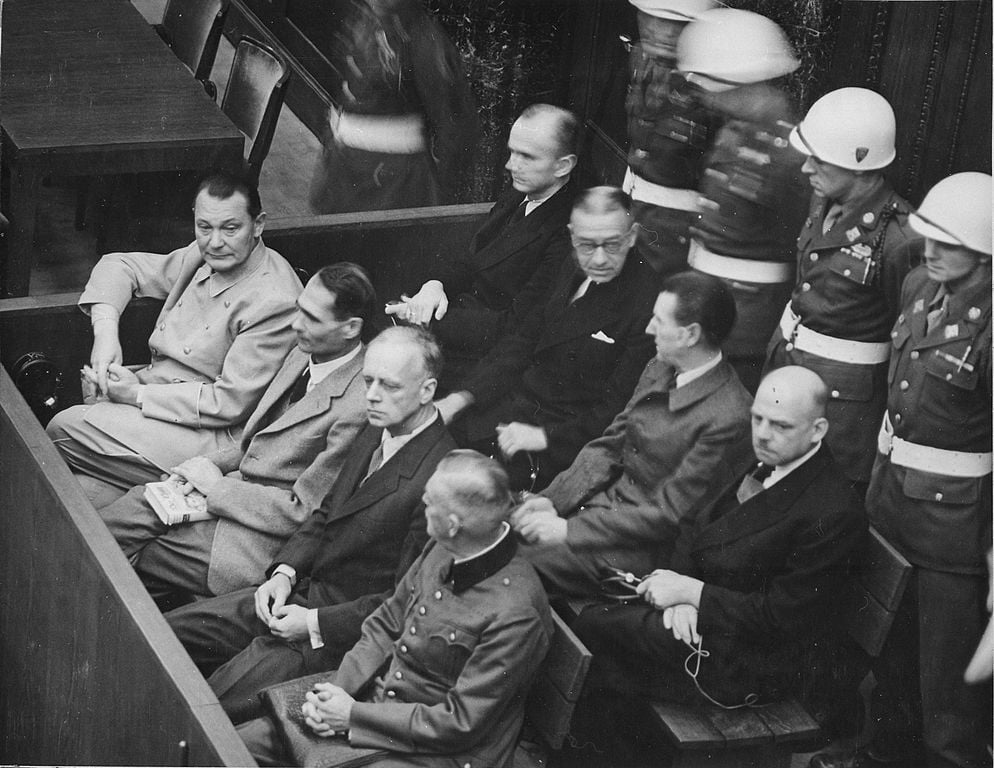
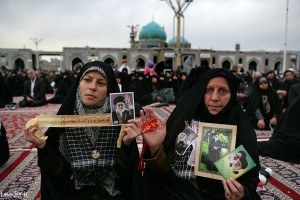
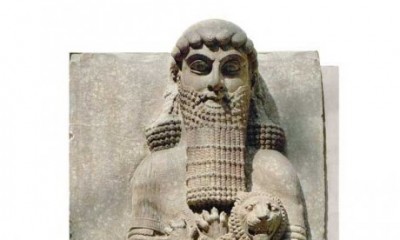


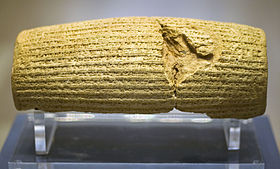



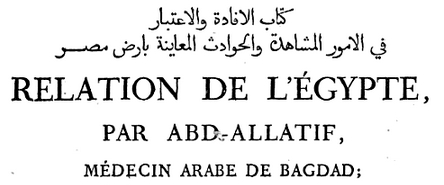
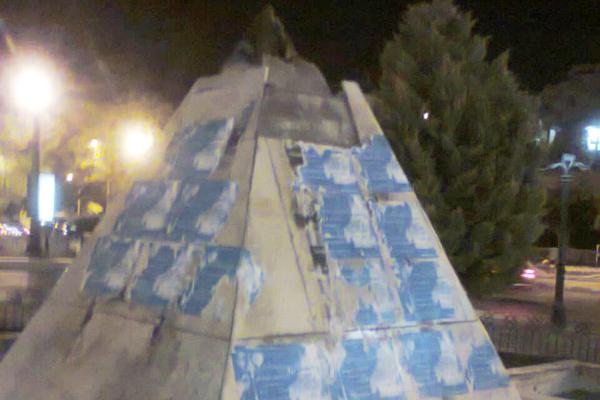
 In answering the question in the title of this essay, the January 2015 segment —
In answering the question in the title of this essay, the January 2015 segment —  Strongly influenced by Freud, Bernays was convinced that human beings are innately driven by monstrous, irrational, inner desires and fears, which civilization is meant to restrain.
Strongly influenced by Freud, Bernays was convinced that human beings are innately driven by monstrous, irrational, inner desires and fears, which civilization is meant to restrain.
 After he had studied the evidence that refutes the official account of 9/11, a friend of mine declared, “My solution to this 9/11 issue is to do more drugs.” Sadly, he was not joking.
After he had studied the evidence that refutes the official account of 9/11, a friend of mine declared, “My solution to this 9/11 issue is to do more drugs.” Sadly, he was not joking. For example, in my own experience, a young psychology student called me from Denmark just to “talk.” His university’s psychologist had decided he was paranoid since, after much research, he had decided that 9/11 was a false-flag operation. He had found my name through the film 9/11: Explosive Evidence — Experts Speak Out, and was so heartened and relieved by the “Seeking Understanding” segment that he decided to take this DVD to his psychologist to demonstrate to her that he was not mentally unstable. What a challenge for this young man that this psychologist was so quick to label him with a diagnosis, rather than open-mindedly researching the issue herself!
For example, in my own experience, a young psychology student called me from Denmark just to “talk.” His university’s psychologist had decided he was paranoid since, after much research, he had decided that 9/11 was a false-flag operation. He had found my name through the film 9/11: Explosive Evidence — Experts Speak Out, and was so heartened and relieved by the “Seeking Understanding” segment that he decided to take this DVD to his psychologist to demonstrate to her that he was not mentally unstable. What a challenge for this young man that this psychologist was so quick to label him with a diagnosis, rather than open-mindedly researching the issue herself! If, on the other hand, we continue “looking forward”32 while remaining silent about the 9/11 elephant in our American living room, we will take her with us into our future,inviting future false-flag operations and other forms of abuse inflicted by government authorities and the powerful, behind-the-scenes deep state. It would appear that many of these figures are likely true sociopaths, lacking a conscience or any sense of connection to the rest of life — a topic we will discuss in Part 20: Those Who Lack Conscience and Empathy.
If, on the other hand, we continue “looking forward”32 while remaining silent about the 9/11 elephant in our American living room, we will take her with us into our future,inviting future false-flag operations and other forms of abuse inflicted by government authorities and the powerful, behind-the-scenes deep state. It would appear that many of these figures are likely true sociopaths, lacking a conscience or any sense of connection to the rest of life — a topic we will discuss in Part 20: Those Who Lack Conscience and Empathy. Some might say I am over-analyzing. After all, when we know the power of the corporate and elite forces we face, isn’t it normal to feel helpless and apathetic? Isn’t it being realistic not to do anything to expose these forces, not to try to take them to justice? Wouldn’t such actions be, at the very least, a waste of time, causing us to neglect those “real” issues so in need of attention? And, besides, aren’t people who focus on ferreting out the truth about 9/11 really just “Debbie Downers?”33 Aren’t they simply cynical and obsessed with negative information, and unable to see the good in our world?
Some might say I am over-analyzing. After all, when we know the power of the corporate and elite forces we face, isn’t it normal to feel helpless and apathetic? Isn’t it being realistic not to do anything to expose these forces, not to try to take them to justice? Wouldn’t such actions be, at the very least, a waste of time, causing us to neglect those “real” issues so in need of attention? And, besides, aren’t people who focus on ferreting out the truth about 9/11 really just “Debbie Downers?”33 Aren’t they simply cynical and obsessed with negative information, and unable to see the good in our world?





























